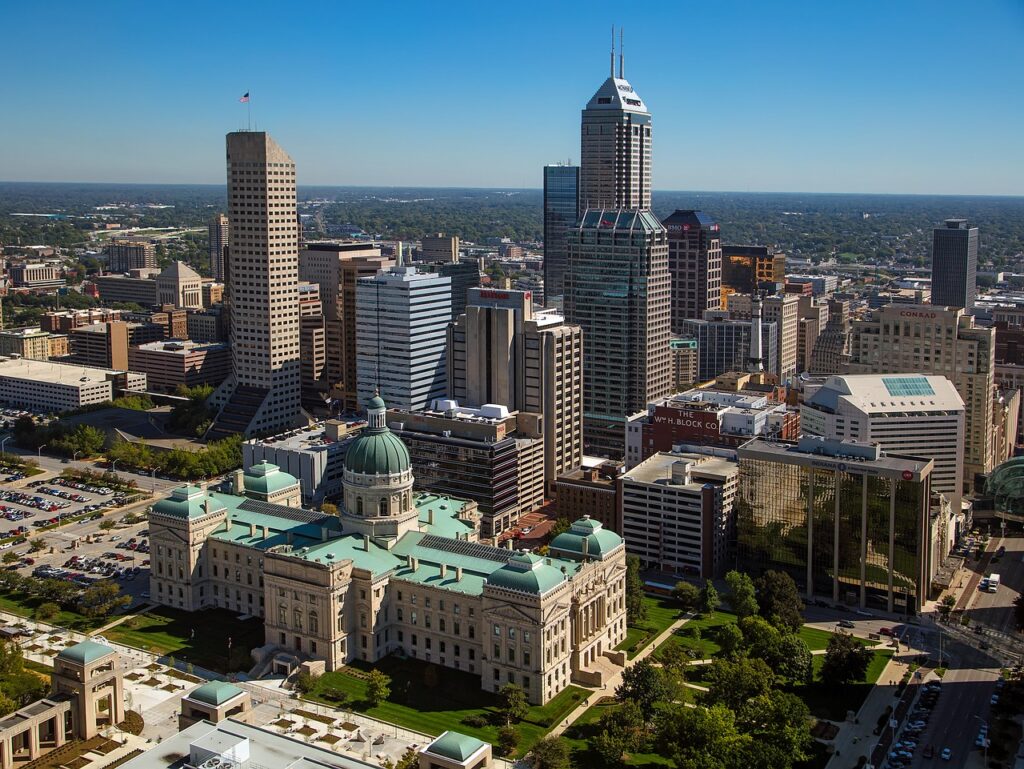Indiana’s EMS providers struggle with Medicaid reimbursement rates that barely cover 40% of actual transport costs, forcing agencies to rely heavily on commercial insurance and local subsidies, pressures that directly challenge Ambulance Collections in Indiana. With growing rural hospital closures extending transport distances and increasing operational costs, Indiana ambulance services face unprecedented financial challenges requiring sophisticated revenue-optimization strategies.
Payer Mix Reality
Indiana’s ambulance services navigate a payer mix featuring Medicaid at 30% of transports, Medicare comprising 36%, commercial insurance representing 26%, and self-pay patients accounting for 8% of total volume. These dynamics shape Ambulance Collections in Indiana, especially in rural counties where Medicare volumes can exceed 45% due to aging demographics and create distinct revenue-cycle challenges for Indiana EMS billing-recovery efforts.
Leading commercial payers—Anthem Blue Cross Blue Shield (40% market share), UnitedHealthcare, Humana, and CareSource—set the tone for Ambulance Collections in Indiana. Anthem’s dominance demands close attention to its billing requirements and pre-authorization protocols. Commercial reimbursement averages $850-1,300 for BLS transports and $1,500-$2,200 for ALS services, with significant variations based on network participation status.
Collection rates reflect Indiana’s challenging reimbursement environment: commercial insurance yields 68-78% collections, Medicare 58-63%, Indiana Medicaid 42-48%, and self-pay patients only 10-14%. Effective Ambulance Collections in Indiana, therefore, require targeted strategies for each payer type, particularly maximizing commercial reimbursements to offset government-payer shortfalls.
State Medicaid & Compliance
Indiana Medicaid ambulance reimbursement remains critically low—about $180-230 for BLS emergency transports plus minimal mileage, directly affecting Ambulance Collections in Indiana. The FSSA enforces a 365-day timely-filing limit, yet frequent retroactive eligibility determinations and managed-care transitions create ongoing billing hurdles that demand constant vigilance.
The No Surprises Act aligns with federal rules, while Indiana adds consumer protections via Department of Insurance oversight. Compliance with state notice requirements for out-of-network services and mandatory good-faith estimates for scheduled non-emergency transports is essential to maintain smooth Ambulance Collections in Indiana workflows.
Prior authorization through Indiana Medicaid’s managed-care entities—Anthem, MDwise, CareSource, and MHS—requires navigation of multiple portals, each with unique timelines and documentation standards, making robust tracking systems indispensable for denial prevention and optimized Ambulance Collections in Indiana.
Schedule a demo today—24-hour turnaround to see how Midwest Service Bureau streamlines Indiana’s complex MCO requirements while maximizing your reimbursements and enhancing Ambulance Collections in Indiana.
Collection Laws
Indiana’s debt-collection framework combines federal FDCPA rules with state-specific regulations that influence ambulance collections in Indiana. The Uniform Consumer Credit Code mandates precise disclosures and limits actions against vulnerable populations. Collection agencies must register with the Secretary of State and follow strict standards when pursuing medical debt.
Recent state legislation strengthened patient protections, prohibiting wage garnishment for households below 300% of federal-poverty guidelines and requiring income-based repayment options—factors that directly steer compliant ambulance collections in Indiana. Providers cannot pursue liens against primary residences for medical debt under $10,000, and a six-year statute of limitations (Indiana Code 34-11-2-9) governs written contracts, ensuring agencies cease efforts on time-barred debt. Indiana’s surprise-billing rules for ambulances demand clear patient notifications and limit balance-billing practices throughout the collection process.
Local EMS Landscape
Indiana’s EMS system blends municipal, hospital-based, and private providers serving varied geographies, which complicates ambulance collections in Indiana. Major hospital systems—Indiana University Health, Ascension St. Vincent, Community Health Network, and Parkview Health—shape facility agreements and reimbursement patterns.
Roughly 650 certified EMS agencies operate statewide: urban areas lean on fire-based EMS, while rural counties depend heavily on volunteer services and hospital-based providers. This diversity creates complex inter-facility-transfer billing scenarios, especially when moving patients between critical-access hospitals and tertiary centers; sophisticated coordination is vital for capturing full reimbursement during ambulance collections in Indiana.
Transport distances average 8-12 miles in cities but often exceed 30-50 miles rurally, inflating costs and billing complexity. The Indiana Department of Homeland Security’s EMS division oversees regulations and pursues grant programs aimed at rural sustainability initiatives that influence statewide billing practices and, consequently, ambulance collections in Indiana.
Case Study
In Fort Wayne, Summit City EMS transformed its revenue cycle by cutting 120-day A/R from $2.8 million to $1.5 million. The agency achieved a 31% increase in net collections through automated insurance verification, enhanced documentation, and dedicated MCO liaisons.
These improvements lowered claim denials from 24% to 8%, boosted clean-claim rates to 95%, and strengthened ambulance collections in Indiana overall. By tailoring workflows to each MCO’s requirements and implementing real-time eligibility checks, Summit City EMS increased commercial-insurance collections by 42% while maintaining full Indiana emergency-medical-transport compliance.
Contact Our Ambulance Collection in Indiana
Ready to optimize your ambulance collection in Indiana? Midwest Service Bureau understands Indiana’s unique challenges. Call 316-263-1051 to discuss your specific needs.
Phone: (316) 263-1051
Address: 625 W. Maple St., Wichita, KS 67213





